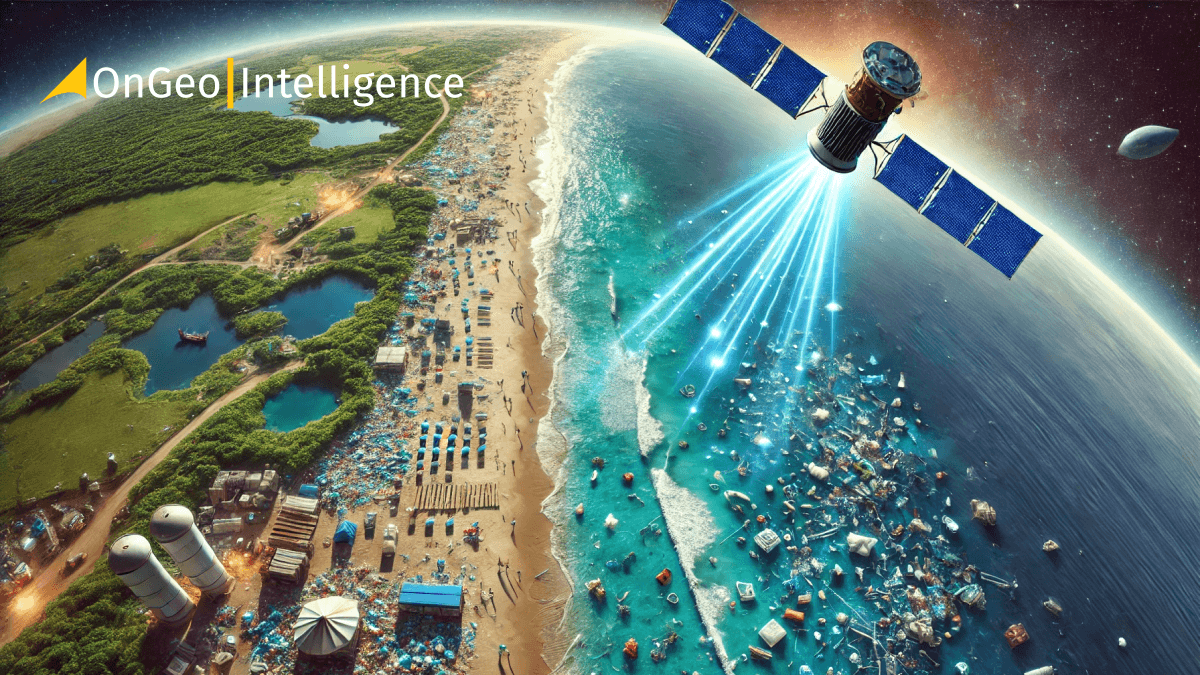The Beached Plastic Debris Index (BPDI): A revolutionary approach to detection
Researchers from RMIT University in Australia have introduced a novel tool—the Beached Plastic Debris Index (BPDI) - to address this global issue. BPDI uses advanced satellite technology to identify plastic waste based on unique light patterns. By focusing on the shortwave infrared (SWIR) spectrum, BPDI differentiates plastic debris from natural elements, improving detection accuracy on crowded coastlines.
Key features of BPDI
- Precise detection: Unlike traditional methods that often misclassify shadows or water as plastic, BPDI pinpoints plastic even with minimal coverage.
- Shortwave infrared technology: By focusing on specific light reflections, BPDI effectively highlights plastics that would blend with natural surroundings.
How BPDI was tested: Field trials with WorldView-3 satellite
For validation, researchers used the high-resolution imagery WorldView-3 satellite by Maxar Technologies, orbiting Earth at 617 km. Field tests took place on a beach in southern Gippsland, Victoria, where the team placed 14 plastic samples, each two square meters, on the sand. These samples represented common plastic types, challenging BPDI to accurately detect plastic against backgrounds of sand and vegetation.
Results of the BPDI testing
- Superior accuracy: BPDI outperformed three other indices, accurately identifying plastic without being misled by shadows or water.
- High precision: The index identified plastic pixels with even less than 30% plastic coverage, demonstrating its effectiveness in realistic coastal settings.
Potential applications: How BPDI can transform marine cleanup efforts
BPDI’s success in detecting plastic on coastlines positions it as a transformative tool for global cleanup initiatives. Its large-scale, high-precision capabilities allow it to be used on remote or hard-to-access beaches where plastic waste frequently accumulates. This could be invaluable for environmental organizations and policymakers focused on Sustainable Development Goals related to ocean conservation.
Scaling BPDI for broader impact
- Collaboration with environmental organizations: Researchers are seeking partnerships to apply BPDI on a global scale.
- Further testing in varied environments: Plans include expanding tests across diverse beach types to ensure reliability across conditions.
BPDI and the future of sustainable development in marine environments
BPDI not only advances satellite remote sensing but aligns closely with global sustainability efforts, particularly the protection of oceans and marine life. By offering a scalable, efficient approach to tracking plastic waste, this innovative index holds promise for a cleaner, more sustainable future.
Conclusion: A new era for plastic waste detection and cleanup
The introduction of BPDI represents a significant leap forward in combating plastic pollution. Through collaboration and continued refinement, this technology could become a cornerstone in efforts to address one of the world’s most persistent pollution issues. Satellite-powered insights from BPDI empower scientists, environmentalists, and decision-makers to take targeted, data-driven actions to protect our planet’s coastlines.















































